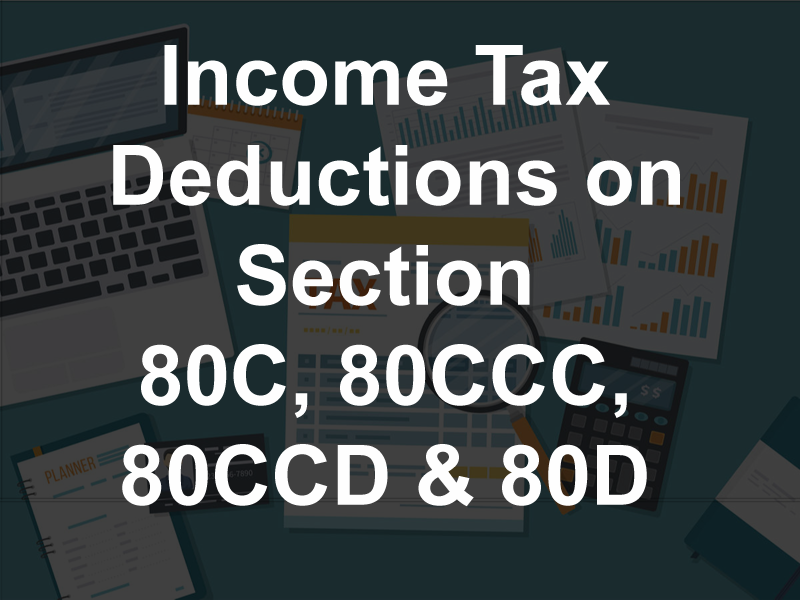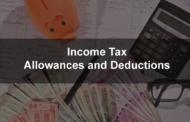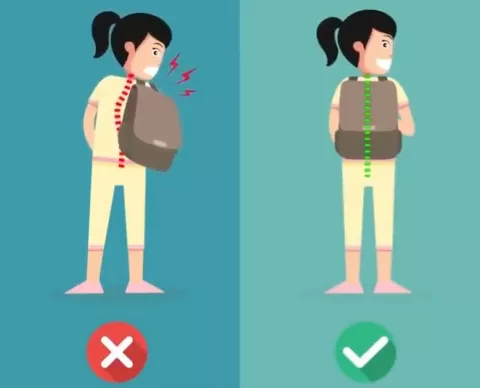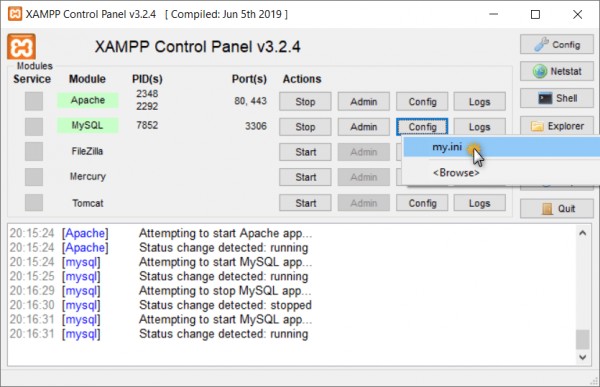Deductions allowed under the income tax act help you reduce your taxable income. You can avail the deductions only if you have made tax-saving investments or incurred eligible expenses. There are a number of deductions available under various sections that will bring down your taxable income. The most popular one is section 80C of Chapter VIA. Other preferred deductions under chapter VIA are 80D, 80E, 80G, 80DDB and so on. In this article, let us discuss some of the important deductions under chapter VIA that a taxpayer can claim.
- Section 80C – Investments
- Section 80CCC – Insurance Premium
- Section 80CCD – Pension Contribution
- Section 80TTA – Interest on Savings Account
- Section 80GG – House Rent Paid
- Section 80E – Interest on Education Loan
- Section 80EE – Interest on Home Loan
- Section 80CCG – RGESS
- Section 80D – Medical Insurance
- Section 80DD – Disabled Dependent
- Section 80DDB – Medical Expenditure
- Section 80U – Physical Disability
- Section 80G – Donations
- Section 80GGB – Company Contribution
- Section 80GGC – Contribution to Political Parties
- Section 80RRB – Royalty of a Patent
- Section 80TTB – Interest Income
You should know also : Income Tax Allowances and Deductions
1. Section 80C
Deductions on Investments
You can claim a deduction of Rs 1.5 lakh your total income under section 80C. In simple terms, you can reduce up to Rs 1,50,000 from your total taxable income, and it is available for individuals and HUFs.
filing your Income Tax Return. The Income Tax Department will refund the excess money to your bank account.
2. Section 80CCC – Insurance Premium
Deduction for Premium Paid for Annuity Plan of LIC or Other Insurer
Section 80CCC provides a deduction to an individual for any amount paid or deposited in any annuity plan of LIC or any other insurer. The plan must be for receiving a pension from a fund referred to in Section 10(23AAB). Pension received from the annuity or amount received upon surrender of the annuity, including interest or bonus accrued on the annuity, is taxable in the year of receipt.
3. Section 80CCD – Pension Contribution
Deduction for Contribution to Pension Account
a. Employee’s contribution under Section 80CCD (1)
You can claim this if you deposit in your pension account. Maximum deduction you can avail is 10% of salary (in case the taxpayer is an employee) or 20% of gross total income (in case the taxpayer being self-employed) or Rs 1.5 lakh – whichever is less.
Until FY 2016-17, maximum deduction allowed was 10% of gross total income for self-employed individuals.
b.Deduction for self-contribution to NPS – section 80CCD (1B) A new section 80CCD (1B) has been introduced for an additional deduction of up to Rs 50,000 for the amount deposited by a taxpayer to their NPS account. Contributions to Atal Pension Yojana are also eligible.
c. Employer’s contribution to NPS – Section 80CCD (2) Claim additional deduction on your contribution to employee’s pension account for up to 10% of your salary. There is no monetary ceiling on this deduction.
Know more about Section 80CCD
4. Section 80 TTA – Interest on Savings Account
Deduction from Gross Total Income for Interest on Savings Bank Account
If you are an individual or an HUF, you may claim a deduction of maximum Rs 10,000 against interest income from your savings account with a bank, co-operative society, or post office. Do include the interest from savings bank account in other income.
Section 80TTA deduction is not available on interest income from fixed deposits, recurring deposits, or interest income from corporate bonds.
5. Section 80GG – House Rent Paid
Deduction for House Rent Paid Where HRA is not Received
a. Section 80GG deduction is available for rent paid when HRA is not received. The taxpayer, spouse or minor child should not own residential accommodation at the place of employment
b. The taxpayer should not have self-occupied residential property in any other place
c. The taxpayer must be living on rent and paying rent
d. The deduction is available to all individuals
Deduction available is the least of the following:
a. Rent paid minus 10% of adjusted total income
b. Rs 5,000/- per month
c. 25% of adjusted total income*
*Adjusted Gross Total Income is arrived at after adjusting the Gross Total Income for certain deductions, exempt income, long-term capital gains and income related to non-residents and foreign companies.
An online e-filing software like that of ClearTax can be extremely easy as the limits are auto-calculated. So, you do not have to worry about making complex calculations.
From FY 2016-17 available deduction has been raised to Rs 5,000 a month from Rs 2,000 per month.
6. Section 80E – Interest on Education Loan
Deduction for Interest on Education Loan for Higher Studies
A deduction is allowed to an individual for interest on loans taken for pursuing higher education. This loan may have been taken for the taxpayer, spouse or children or for a student for whom the taxpayer is a legal guardian.
80E deduction is available for a maximum of 8 years (beginning the year in which the interest starts getting repaid) or till the entire interest is repaid, whichever is earlier. There is no restriction on the amount that can be claimed.
7. Section 80EE – Interest on Home Loan
Deductions on Home Loan Interest for First Time Home Owners
FY 2017-18 and FY 2016-17 This deduction is available in FY 2017-18 if the loan has been taken in FY 2016-17. The deduction under section 80EE is available only to home-owners (individuals) having only one house property on the date of sanction of the loan. The value of the property must be less than Rs 50 lakh and the home loan must be less than Rs 35 lakh. The loan taken from a financial institution must have been sanctioned between 1 April 2016 and 31 March 2017. There is an additional deduction of Rs 50,000 available on your home loan interest on top of deduction of Rs 2 lakh (on interest component of home loan EMI) allowed under section 24.
FY 2013-14 and FY 2014-15 During these financial years, the deduction available under this section was first-time house worth Rs 40 lakh or less. You can avail this only when your loan amount during this period is Rs 25 lakh or less. The loan must be sanctioned between 1 April 2013 and 31 March 2014. The aggregate deduction allowed under this section cannot exceed Rs 1 lakh and is allowed for FY 2013-14 and FY 2014-15.
8. Section 80CCG – RGESS
Rajiv Gandhi Equity Saving Scheme (RGESS)
The deduction under this section 80CCG is available to a resident individual, whose gross total income is less than Rs.12 lakh. To avail the benefits under this section the following conditions should be met:
a. The assessee should be a new retail investor as per the requirement specified under the notified scheme.
b. The investment should be made in such listed investor as per the requirement specified under the notified scheme.
c. The minimum lock in period in respect of such investment is three years from the date of acquisition in accordance with the notified scheme.
Upon fulfillment of the above conditions, a deduction, which is lower of the following is allowed.
- 50% of the amount invested in equity shares; or
- Rs 25,000 for three consecutive Assessment Years.
Rajiv Gandhi Equity Scheme has been discontinued starting from 1 April 2017. Therefore, no deduction under section 80CCG will be allowed from FY 2017-18. However, if you have invested in the RGESS scheme in FY 2016-17, then you can claim deduction under Section 80CCG until FY 2018-19.
9. Section 80D – Medical Insurance
Deduction for the premium paid for Medical Insurance
You (as an individual or HUF) can claim a deduction of Rs.25,000 under section 80D on insurance for self, spouse and dependent children. An additional deduction for insurance of parents is available up to Rs 25,000, if they are less than 60 years of age. If the parents are aged above 60, the deduction amount is Rs 50,000, which has been increased in Budget 2018 from Rs 30,000. In case, both taxpayer and parent(s) are 60 years or above, the maximum deduction available under this section is up to Rs.1 lakh.
Example: Rohan’s age is 65 and his father’s age is 90. In this case, the maximum deduction Rohan can claim under section 80D is Rs. 100,000. From FY 2015-16 a cumulative additional deduction of Rs. 5,000 is allowed for preventive health check.
10. Section 80DD – Disabled Dependent
Deduction for Rehabilitation of Handicapped Dependent Relative
Section 80DD deduction is available to a resident individual or a HUF and is available on:
a. Expenditure incurred on medical treatment (including nursing), training and rehabilitation of handicapped dependent relative
b. Payment or deposit to specified scheme for maintenance of handicapped dependent relative.
i. Where disability is 40% or more but less than 80% – fixed deduction of Rs 75,000.
ii. Where there is severe disability (disability is 80% or more) – fixed deduction of Rs 1,25,000.
To claim this deduction a certificate of disability is required from prescribed medical authority. From FY 2015-16 – The deduction limit of Rs 50,000 has been raised to Rs 75,000 and Rs 1,00,000 has been raised to Rs 1,25,000.
11. Section 80DDB – Medical Expenditure
Deduction for Medical Expenditure on Self or Dependent Relative
a. For individuals and HUFs below age 60A deduction up to Rs.40,000 is available to a resident individual or a HUF. It is available with respect to any expense incurred towards treatment of specified medical diseases or ailments for himself or any of his dependents. For an HUF, such a deduction is available with respect to medical expenses incurred towards these prescribed ailments for any of the HUF members.
b. For senior citizens and super senior citizensIn case the individual on behalf of whom such expenses are incurred is a senior citizen, the individual or HUF taxpayer can claim a deduction up to Rs 1 lakh. Until FY 2017-18, the deduction that could be claimed for a senior citizen and a super senior citizen was Rs 60,000 and Rs 80,000 respectively. This has now become a common deduction available upto Rs 1 lakh for all senior citizens (including super senior citizens) unlike earlier.
c. For reimbursement claims
Also remember that you need to get a prescription for such medical treatment from the concerned specialist in order to claim such deduction.
12. Section 80U – Physical Disability
Deduction for Person suffering from Physical Disability
A deduction of Rs.75,000 is available to a resident individual who suffers from a physical disability (including blindness) or mental retardation. In case of severe disability, one can claim a deduction of Rs 1,25,000.
From FY 2015-16 – Section 80U deduction limit of Rs 50,000 has been raised to Rs 75,000 and Rs 1,00,000 has been raised to Rs 1,25,000.
13. Section 80G – Donations
Deduction for donations towards Social Causes
The various donations specified in u/s 80G are eligible for deduction up to either 100% or 50% with or without restriction. From FY 2017-18 any donations made in cash exceeding Rs 2,000 will not be allowed as deduction. The donations above Rs 2000 should be made in any mode other than cash to qualify for 80G deduction.
a. Donations with 100% deduction without any qualifying limit
- National Defence Fund set up by the Central Government
- Prime Minister’s National Relief Fund
- National Foundation for Communal Harmony
- An approved university/educational institution of National eminence
- Zila Saksharta Samiti constituted in any district under the chairmanship of the Collector of that district
- Fund set up by a State Government for the medical relief to the poor
- National Illness Assistance Fund
- National Blood Transfusion Council or to any State Blood Transfusion Council
- National Trust for Welfare of Persons with Autism, Cerebral Palsy, Mental Retardation and Multiple Disabilities
- National Sports Fund
- National Cultural Fund
- Fund for Technology Development and Application
- National Children’s Fund
- Chief Minister’s Relief Fund or Lieutenant Governor’s Relief Fund with respect to any State or Union Territory
- The Army Central Welfare Fund or the Indian Naval Benevolent Fund or the Air Force Central Welfare Fund, Andhra Pradesh Chief Minister’s Cyclone Relief Fund, 1996
- The Maharashtra Chief Minister’s Relief Fund during October 1, 1993 and October 6,1993
- Chief Minister’s Earthquake Relief Fund, Maharashtra
- Any fund set up by the State Government of Gujarat exclusively for providing relief to the victims of earthquake in Gujarat
- Any trust, institution or fund to which Section 80G(5C) applies for providing relief to the victims of earthquake in Gujarat (contribution made during January 26, 2001 and September 30, 2001) or
- Prime Minister’s Armenia Earthquake Relief Fund
- Africa (Public Contributions — India) Fund
- Swachh Bharat Kosh (applicable from financial year 2014-15)
- Clean Ganga Fund (applicable from financial year 2014-15)
- National Fund for Control of Drug Abuse (applicable from financial year 2015-16)
b. Donations with 50% deduction without any qualifying limit
- Jawaharlal Nehru Memorial Fund
- Prime Minister’s Drought Relief Fund
- Indira Gandhi Memorial Trust
- The Rajiv Gandhi Foundation
c. Donations to the following are eligible for 100% deduction subject to 10% of adjusted gross total income
- Government or any approved local authority, institution or association to be utilized for the purpose of promoting family planning
- Donation by a Company to the Indian Olympic Association or to any other notified association or institution established in India for the development of infrastructure for sports and games in India or the sponsorship of sports and games in India
d. Donations to the following are eligible for 50% deduction subject to 10% of adjusted gross total income
- Any other fund or any institution which satisfies conditions mentioned in Section 80G(5)
- Government or any local authority to be utilized for any charitable purpose other than the purpose of promoting family planning
- Any authority constituted in India for the purpose of dealing with and satisfying the need for housing accommodation or for the purpose of planning, development or improvement of cities, towns, villages or both
- Any corporation referred in Section 10(26BB) for promoting the interest of minority community
- For repairs or renovation of any notified temple, mosque, gurudwara, church or other places.
14. Section 80GGB – Company Contribution
Deduction on contributions given by companies to Political Parties
Section 80GGB deduction is allowed to an Indian company for the amount contributed by it to any political party or an electoral trust. Deduction is allowed for contribution done by any way other than cash.
15. Section 80GGC – Contribution to Political Parties
Deduction on contributions given by any person to Political Parties
Deduction under section 80GGC is allowed to an individual taxpayer for any amount contributed to a political party or an electoral trust. It is not available for companies, local authorities and an artificial juridical person wholly or partly funded by the government. You can avail this deduction only if you pay by any way other than cash.
16. Section 80RRB – Royalty of a Patent
Deduction with respect to any Income by way of Royalty of a Patent
80RRB Deduction for any income by way of royalty for a patent, registered on or after 1 April 2003 under the Patents Act 1970, shall be available for up to Rs.3 lakh or the income received, whichever is less. The taxpayer must be an individual patentee and an Indian resident. The taxpayer must furnish a certificate in the prescribed form duly signed by the prescribed authority.
17. Section 80 TTB – Interest Income
Deduction of Interest on Deposits for Senior Citizens
A new section 80TTB has been inserted vide Budget 2018 in which deductions with respect to interest income from deposits held by senior citizens will be allowed. The limit for this deduction is Rs.50,000.No further deduction under section 80TTA shall be allowed. In addition to section 80 TTB, section 194A of the Act will also be amended so as to increase the threshold limit for TDS on interest income payable to senior citizens. The earlier limit was Rs 10,000, which was increased to Rs 50,000 as per the latest Budget.
18. Deductions-Summary
Section 80 Deduction Table
| Section | Deduction on | Allowed Limit (maximum) FY 2018-19 |
|---|---|---|
| 80C | Investment in PPF – Employee’s share of PF contribution – NSCs – Life Insurance Premium payment – Children’s Tuition Fee – Principal Repayment of home loan – Investment in Sukanya Samridhi Account – ULIPS – ELSS – Sum paid to purchase deferred annuity – Five year deposit scheme – Senior Citizens savings scheme – Subscription to notified securities/notified deposits scheme – Contribution to notified Pension Fund set up by Mutual Fund or UTI. – Subscription to Home Loan Account scheme of the National Housing Bank – Subscription to deposit scheme of a public sector or company engaged in providing housing finance – Contribution to notified annuity Plan of LIC – Subscription to equity shares/ debentures of an approved eligible issue – Subscription to notified bonds of NABARD |
Rs. 1,50,000 |
| 80CCC | For amount deposited in annuity plan of LIC or any other insurer for a pension from a fund referred to in Section 10(23AAB) | – |
| 80CCD(1) | Employee’s contribution to NPS account (maximum up to Rs 1,50,000) | – |
| 80CCD(2) | Employer’s contribution to NPS account | Maximum up to 10% of salary |
| 80CCD(1B) | Additional contribution to NPS | Rs. 50,000 |
| 80TTA(1) | Interest Income from Savings account | Maximum up to 10,000 |
| 80TTB | Exemption of interest from banks, post office, etc. Applicable only to senior citizens | Maximum up to 50,000 |
| 80GG | For rent paid when HRA is not received from employer | Least of : – Rent paid minus 10% of total income – Rs. 5000/- per month – 25% of total income |
| 80E | Interest on education loan | Interest paid for a period of 8 years |
| 80EE | Interest on home loan for first time home owners | Rs 50,000 |
| 80CCG | Rajiv Gandhi Equity Scheme for investments in Equities | Lower of – 50% of amount invested in equity shares; or – Rs 25,000 |
| 80D | Medical Insurance – Self, spouse, children Medical Insurance – Parents more than 60 years old or (from FY 2015-16) uninsured parents more than 80 years old |
– Rs. 25,000 – Rs. 50,000 |
| 80DD | Medical treatment for handicapped dependent or payment to specified scheme for maintenance of handicapped dependent – Disability is 40% or more but less than 80% – Disability is 80% or more |
– Rs. 75,000 – Rs. 1,25,000 |
| 80DDB | Medical Expenditure on Self or Dependent Relative for diseases specified in Rule 11DD – For less than 60 years old – For more than 60 years old |
– Lower of Rs 40,000 or the amount actually paid – Lower of Rs 1,00,000 or the amount actually paid |
| 80U | Self-suffering from disability : – An individual suffering from a physical disability (including blindness) or mental retardation. – An individual suffering from severe disability |
– Rs. 75,000 – Rs. 1,25,000 |
| 80GGB | Contribution by companies to political parties | Amount contributed (not allowed if paid in cash) |
| 80GGC | Contribution by individuals to political parties | Amount contributed (not allowed if paid in cash) |
| 80RRB | Deductions on Income by way of Royalty of a Patent | Lower of Rs 3,00,000 or income received |
Source : cleartax.in
































One Comment
Pingback: Income Tax Allowances and Deductions | 100Utils